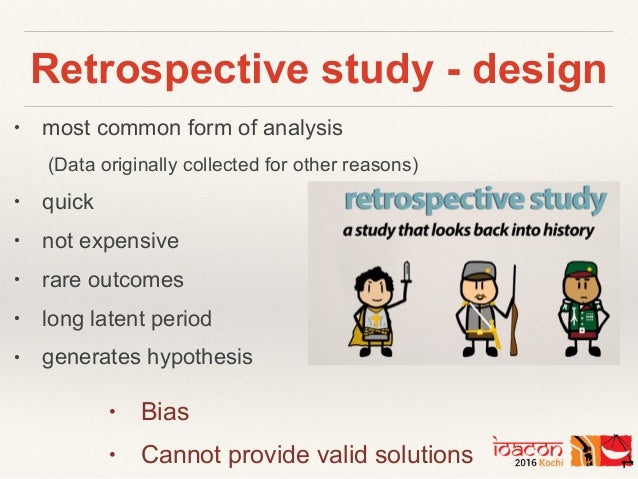

RETROSPECTIVE RESEARCH: 'Retrospective research follows a subject back to the past to resolve current issues.' Cite this page: N., Sam M.S., 'RETROSPECTIVE RESEARCH,' in, Ap. Retrospective Cohort StudyĪ retrospective cohort study allows the investigator to describe a population over time or obtain preliminary measures of association to develop future studies and interventions. Mental study which intends to analyze the present in premise to the past. It is very important in a case-control study that the cases be as similar to the controls on all factors except the outcome of interest. Cases and controls are established based on the presence of the condition, and exposure is assessed by looking back over time.

In a retrospective case-control study the investigator can quickly estimate the effect of an exposure on outcome status. We’ll discuss two types of retrospective studies: Obtain preliminary measures of association.Retrospective studies include those that involve as retrospective reviews of patient. Quickly estimate the effect of an exposure on an outcome. Protocol Template Retrospective Review of Existing Data/Specimens.Study a rare outcome for which a prospective study is not feasible.In general, the reasons to conduct a retrospective study are to: A retrospective study design allows the investigator to formulate ideas about possible associations and investigate potential relationships, although causal statements usually should not be made.Īn investigator conducting a retrospective study typically utilizes administrative databases, medical records, or interviews with patients who are already known to have a disease or condition. In a retrospective study, the outcome of interest has already occurred at the time the study is initiated.


 0 kommentar(er)
0 kommentar(er)
